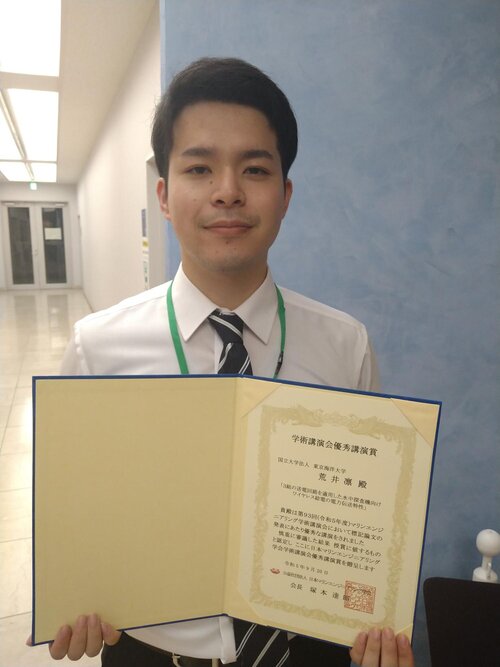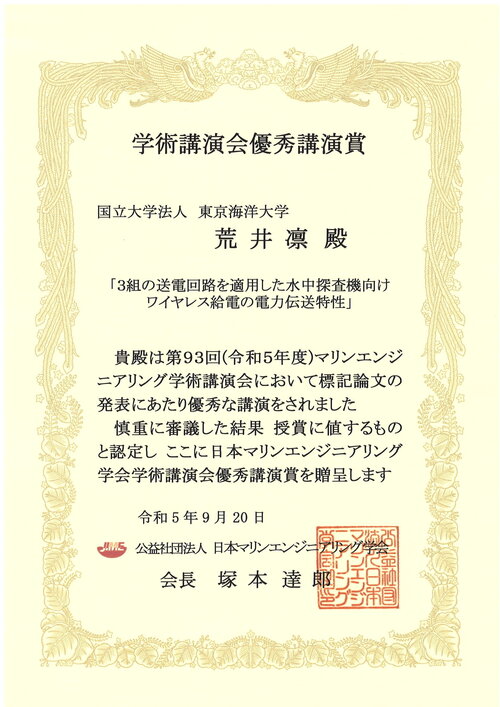Shinagawa Etchujima Campus Graduate School of Marine Science and Technology
Graduate School of Marine Science and Technology
The Graduate School of Marine Science and Technology has a doctoral course divided into a master's course and a doctoral course, and trains independent highly specialized professionals who open up cutting-edge fields.Furthermore, in collaboration with the Japan Fisheries Research and Education Agency, the Japan Agency for Marine-Earth Science and Technology, and the National Institute of Maritime, Port and Aviation Technology, we will further enhance education and research and improve the quality of graduate students. We are trying to
-

-
School of Marine Life ScienceShinagawa Campus
- Department of Marine Biological Resources
- Department of Food Production Science
- Department of Ocean Policy and Culture
-

-
School of Marine TechnologyEtchujima Campus
- Undergraduate Course of Maritime Systems Engineering
- Undergraduate Course of Marine Electronics and Mechanical Engineering
- Undergraduate Course of Logistics and Information Engineering
-

-
Faculty of Marine Resources and EnvironmentShinagawa Campus
- Department of Marine Environmental Science
- Department of Marine Resources and Energy
[Awards and Commendations] Rin Arai (2nd year master's student) received the Outstanding Lecture Award at the 93rd Marine Engineering Academic Conference.
The 2023rd Marine Engineering Academic Conference sponsored by the Japan Society of Marine Engineering was held at the Fukae Campus of Kobe University from September 9th to 19st, 21, and Rin Arai, a graduate student at our university, received the Excellent Presentation Award.The Outstanding Lecture Award is given to speakers under the age of 93, and this year there were 35 eligible lectures, of which three were recognized as the Outstanding Lecture Award.
【Winner】
Rin Arai (2nd year master's program, Department of Marine Systems Engineering, Graduate School of Marine Science and Technology)
[Title of award-winning research]
Power transmission characteristics of wireless power supply for underwater probe using three sets of power transmission circuits
[Details of award-winning research]
Application of an underwater wireless power supply system is being considered as a method of charging batteries installed in underwater vehicles, but the power supply position of underwater vehicles tends to shift due to the influence of ocean currents, so it is necessary to consider a stable power supply method. be.In this study, we conducted an experiment to examine the effect of applying resonant frequency tracking control to wireless power supply for an underwater vehicle, which has three sets of power transmission circuits that can detect the positional deviation of the underwater vehicle. The improvement in power transmission efficiency was confirmed through experiments.
<Related links>
Japan Society of Marine Engineering
Tokyo University of Marine Science and Technology Electric Power Laboratory






